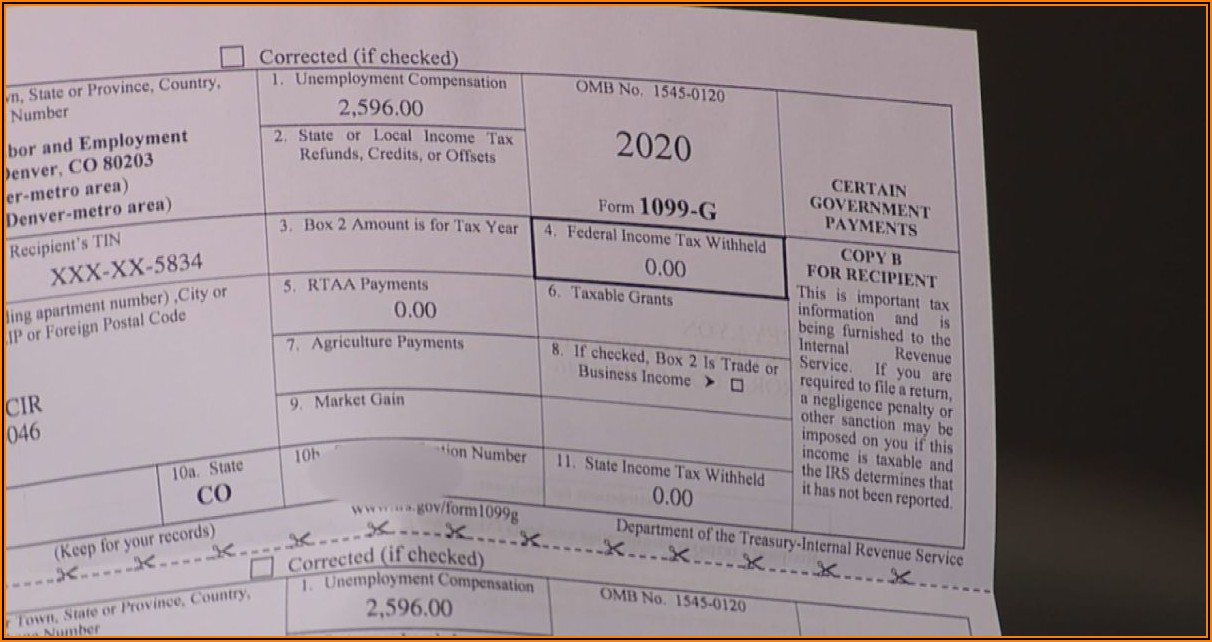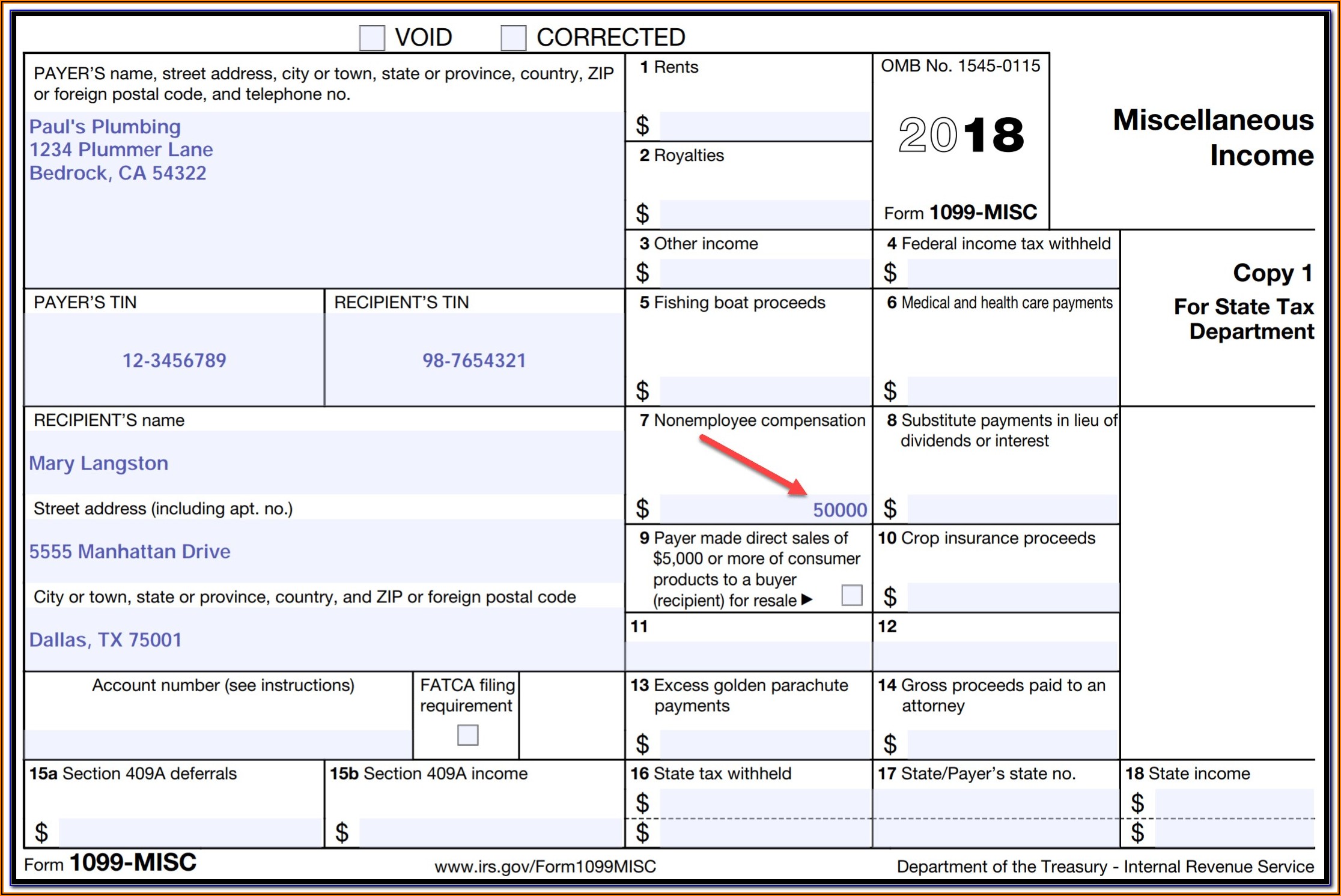1099 Form Colorado: Your Ultimate Guide To Navigating Freelance Taxes In The Centennial State
Let’s talk about something that affects every freelancer, contractor, and gig worker in Colorado: the 1099 form. If you’re scratching your head wondering what this is all about, don’t worry—you’re not alone. Whether you’ve just started freelancing or you’re a seasoned pro, understanding the 1099 form is key to staying on the right side of the IRS and Colorado’s tax authorities. So, buckle up, because we’re diving deep into the world of 1099 forms and how they apply in Colorado.
Now, before you zone out thinking this is going to be another boring tax lecture, let me assure you—it’s not. We’re breaking it down in a way that’s easy to digest, with real-world examples, tips, and tricks to help you navigate the tax maze like a pro. Plus, we’ll sprinkle in some fun facts about Colorado along the way, because who doesn’t love a good mountain state trivia?
So, whether you’re a graphic designer in Denver, a gig worker in Boulder, or a consultant in Colorado Springs, this guide is for you. Let’s get started and make sure you’re 100% ready for tax season without breaking a sweat!
- Jennette Mccurdy Nude Facts Myths And The Real Story Behind The Headlines
- Penelope Menchaca Onlyfans Your Ultimate Guide To Her Content Journey And Success
Table of Contents
- What is a 1099 Form?
- Types of 1099 Forms
- Colorado Tax Rules for 1099
- Filing Deadlines for 1099 Forms in Colorado
- Common Mistakes to Avoid
- Deductions for 1099 Contractors in Colorado
- How to File Your 1099 Form
- IRS vs Colorado Tax Differences
- Software Tools for 1099 Filers
- Conclusion: Stay Compliant, Stay Happy
What is a 1099 Form?
Alright, let’s start with the basics. A 1099 form is basically like a report card for your freelance income. It’s what businesses use to tell the IRS (and Colorado’s Department of Revenue) how much they paid you during the year. If you earned more than $600 from a single client, they’re required by law to send you a 1099 form.
Think of it as a little piece of paper—or nowadays, an electronic file—that says, “Hey IRS, I paid this person X amount of money for their services.” This is super important because it means you’re responsible for reporting that income on your tax return. No hiding, no avoiding—it’s all out in the open.
Why is the 1099 Form Important?
Here’s the deal: if you’re a contractor or freelancer, the 1099 form is your ticket to proving your income. Without it, you’re flying blind when it comes to tax season. It also helps you avoid penalties and interest charges if you forget to report any income. Trust me, no one wants to deal with that kind of headache.
- Jailyne Ojeda Nude Unveiling The Truth Behind The Controversy
- Jameliz Benitez Smith The Rising Star Whos Taking The World By Storm
Types of 1099 Forms
Now, here’s where things can get a little tricky. There’s not just one type of 1099 form—there are several. Each one serves a different purpose, depending on the kind of income you’re earning. Let’s break it down:
- 1099-NEC: This is for non-employee compensation, like freelance or contract work. If you’re getting paid for services rendered, this is probably the form you’ll see.
- 1099-MISC: Used for miscellaneous income, like rental income or royalties. It’s kind of like the catch-all form.
- 1099-DIV: If you’ve got any dividend income, this is the form you’ll need.
- 1099-INT: For interest income, like what you might earn from a savings account.
And there are more, but these are the big ones you’re likely to encounter as a freelancer or contractor in Colorado.
Colorado Tax Rules for 1099
Now, let’s zoom in on Colorado. The Centennial State has its own set of rules when it comes to 1099 forms. First off, Colorado requires businesses to report all 1099 payments to the state Department of Revenue. This means that if you’re a freelancer or contractor in Colorado, your income is being tracked at both the federal and state levels.
One thing to keep in mind is that Colorado doesn’t have a separate 1099 form. Instead, businesses use the federal 1099 forms and send copies to the state. This simplifies things a bit, but it also means you need to be extra diligent about keeping track of your income and expenses.
What’s the Colorado Tax Rate for 1099 Income?
As of 2023, Colorado has a flat tax rate of 4.55% for state income tax. That means no matter how much you earn as a 1099 contractor, you’ll pay 4.55% of your income to the state. It’s a pretty straightforward system, but don’t forget—you’ll also owe federal taxes on that income.
Filing Deadlines for 1099 Forms in Colorado
Deadlines are crucial when it comes to taxes. Miss them, and you could be looking at penalties and interest charges. Here’s what you need to know:
- Businesses: If you’re a business owner sending out 1099 forms, you need to get them to your contractors by January 31st. You also have to file copies with the IRS and Colorado Department of Revenue by the same date.
- Contractors: As a contractor, you need to include all your 1099 income on your tax return. The deadline for filing your federal and state taxes is usually April 15th.
Pro tip: Don’t wait until the last minute. Start gathering your documents early, and consider working with a tax professional if you’re feeling overwhelmed.
Common Mistakes to Avoid
Mistakes happen, but when it comes to taxes, they can cost you big time. Here are some common pitfalls to watch out for:
- Not Tracking Income: If you don’t keep track of all the income you earn, you might miss out on reporting some of it. This can lead to penalties and interest charges down the road.
- Forgetting to Pay Estimated Taxes: As a 1099 contractor, you don’t have taxes withheld from your paychecks. That means you need to pay estimated taxes quarterly to avoid a big bill at tax time.
- Not Keeping Receipts: Expenses are deductible, but you need to have proof. Keep all your receipts and organize them so you can claim every possible deduction.
Deductions for 1099 Contractors in Colorado
Now, here’s the good news: as a 1099 contractor, you can deduct a lot of business expenses from your income. This can significantly reduce the amount of tax you owe. Some common deductions include:
- Home Office: If you work from home, you might be able to deduct a portion of your rent or mortgage, utilities, and other home-related expenses.
- Travel Expenses: If you travel for work, you can deduct things like mileage, lodging, and meals.
- Equipment and Supplies: Anything you buy for your business, like a laptop, software, or office supplies, can be deducted.
Just remember to keep good records and consult with a tax professional if you’re unsure about what you can deduct.
How to File Your 1099 Form
Filing your 1099 form might seem intimidating, but it’s actually pretty straightforward. Here’s a step-by-step guide:
- Gather Your Documents: Collect all your 1099 forms, as well as any other income documents you might have.
- Fill Out Your Tax Return: Use IRS Form 1040 to report your income. You’ll also need to fill out Schedule C if you’re self-employed.
- File Electronically: Most people find it easier to file their taxes electronically using tax software or a tax professional.
And just like that, you’re done! Well, almost. Don’t forget to double-check everything before you hit submit.
IRS vs Colorado Tax Differences
While Colorado follows many of the same rules as the IRS, there are a few differences to be aware of. For example, Colorado doesn’t have a separate 1099 form, but it does require businesses to report all 1099 payments to the state. Additionally, Colorado has a flat tax rate, which makes things a bit simpler compared to the federal tax brackets.
It’s always a good idea to familiarize yourself with both federal and state tax laws to make sure you’re fully compliant.
Software Tools for 1099 Filers
If you’re looking for some help with your 1099 filing, there are plenty of software tools out there to make your life easier. Some popular options include:
- TurboTax: Great for beginners, TurboTax walks you through the filing process step-by-step.
- QuickBooks: If you’re a small business owner or freelancer, QuickBooks can help you track income and expenses throughout the year.
- Wave: A free option for freelancers and small businesses, Wave offers invoicing, accounting, and tax features.
Choose the tool that best fits your needs and budget, and don’t hesitate to reach out to a tax professional if you need extra guidance.
Conclusion: Stay Compliant, Stay Happy
And there you have it—your ultimate guide to navigating 1099 forms in Colorado. Whether you’re a newbie to the freelance world or a seasoned pro, understanding the ins and outs of 1099 forms is essential for staying compliant and avoiding headaches come tax season.
Remember to keep track of your income and expenses, pay your estimated taxes on time, and take advantage of all the deductions you’re entitled to. And if you ever feel overwhelmed, don’t hesitate to seek help from a tax professional.
Now, go out there and conquer the freelance world like the boss you are. And hey, if you found this guide helpful, drop a comment or share it with your fellow freelancers. Let’s spread the knowledge and make tax season a little less stressful for everyone!
- Is Val Sweeting Married The Fascinating Journey Of A Curling Champion
- Ari Kytsya Leaks The Untold Story Behind The Viral Sensation

Colorado 1099 Form Form Resume Examples

Colorado 1099 Form Form Resume Examples edV1pPlBYq

Colorado 1099 Form Form Resume Examples edV1pPlBYq